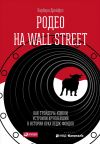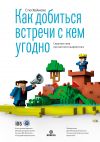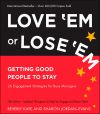Правообладателям!
Представленный фрагмент книги размещен по согласованию с распространителем легального контента ООО "ЛитРес" (не более 20% исходного текста). Если вы считаете, что размещение материала нарушает ваши или чьи-либо права, то сообщите нам об этом.Читателям!
Оплатили, но не знаете что делать дальше?
Текст бизнес-книги "Memory Wall"
Автор книги: Anthony Doerr
Раздел: Жанр неизвестен
Текущая страница: 2 (всего у книги 5 страниц)
TREASURE ISLAND
At sunset Pheko poaches a chicken breast and lays a stack of green beans beside it. Out the window flotillas of rainclouds gather over the Atlantic. Alma stares into her plate as if at some incomprehensible puzzle. Pheko says, “Doctor find some good ones this morning, Mrs. Alma?”
“Good ones?” She blinks. The grandfather clock in the living room ticks. The room flickers with a rich, silvery light. Pheko is a pair of eyeballs, a smell like soap. “Old ones,” Alma says.
He helps her into her nightgown and squirts a cylinder of toothpaste onto her toothbrush. Then her pills. Two white. Two gold. Alma clambers into bed muttering questions.
Wind-borne rain starts a gentle patter on the windows. “Okay, Mrs. Alma,” Pheko says. He pulls the quilt up to her throat. “I got to go home.” His hand is on the lamp. His telephone is vibrating in his pocket.
“Harold,” Alma says. “Read to me.”
“I’m Pheko, Mrs. Alma.”
ANTHONY DOERR
Alma shakes her head. “Goddammit.”
“You’ve torn your book all apart, Mrs. Alma.”
“I have? I have not. Someone else did that.”
A breath. A sigh. On the dresser, three lustrous wigs sit atop featureless porcelain heads. “Ten minutes,” Pheko says. Alma lays back, bald, glazed, a withered child. Pheko sits in the bedside chair and takes Treasure Island off the nightstand. Pages fall out when he opens it.
He reads the first paragraphs from memory. I remember him as if it were yesterday, as he came plodding to the inn door, his sea chest following behind him in a hand-barrow; a tall, strong, heavy, nut-brown man …
One more page and Alma is asleep.
B478A
Pheko catches the 9:20 Golden Arrow to Khayelitsha. He is a little man in black trousers and a red cable-knit sweater. In the bus seat, his shoes barely touch the floor. Gated compounds and walls of bougainvillea and little bistros lit with colored bulbs slide past. At Hanny Street the bus pauses outside Virgin Active Fitness, where three indoor pools smolder with aquamarine light, a last few swimmers toiling through the lanes, an elephantine waterslide disgorging water in the corner.
The bus fills with township girls: office cleaners, waitresses, laundresses, women who go by one name in Cape Town and another in the townships, housekeepers called Sylvia or Alice about to become mothers called Malili or Momtolo.
Drizzle streaks the windows. Voices murmur in Xhosa, Sotho, Tswana. The gaps between streetlights lengthen; soon Pheko can see only the upflung penumbras of billboard spotlights here and there in the dark. Drink Opa. Report Cable Thieves. Wear a Condom.
Khayelitsha is thirty square miles of shanties made of aluminum and cinder blocks and sackcloth and car doors. At the century’s turn it was home to half a million people—now it’s four times bigger. War refugees, water refugees, HIV refugees. Unemployment might be as high as sixty percent. A thousand haphazard light towers stand over the shacks like limbless trees. Women carry babies or plastic bags or vegetables or ten-gallon water jugs along the roadsides. Men wobble past on bicycles. Dogs wander.
Pheko gets off at Site C and hurries along a line of shanties in the rain. Windchimes tinkle. A goat picks its way through puddles. Torpid men perch on fenders of gutted taxis or upended fruit crates or beneath ragged tarps. Someone a few alleys over lights a firework and it blooms and fades over the rooftops.
B478A is a pale green shed with a sandy floor and a light blue door. Three treadless tires hold the roof in place. Bars seal off the two windows. Temba is inside, still awake, animated, whispering, nearly jumping up and down in place. He wears a T-shirt several sizes too large; his little eyeglasses bounce on his nose.
“Paps,” he says, “Paps, you’re twenty-one minutes late! Paps, Boginkosi caught three cats today, can you believe it? Paps, can you make paraffin from plastic bags?”
Pheko sits on the bed and waits for his vision to adjust to the dimness. The walls are papered with faded supermarket circulars. Dish soap for R1.99. Juice two for one. Yesterday’s laundry hangs from the ceiling. A rust-red stove stands propped on bricks in the corner. Two metal-and-plastic folding chairs complete the furniture.
Outside the rain sifts down through the vapor lights and makes a slow, lulling clatter on the roof. Insects creep in, seeking refuge; gnats and millipedes and big, glistening flies. Twin veins of ants flow across the floor and braid into channels under the stove. Moths flutter at the window screens. Pheko hears the accountant’s voice in his ear: You had to see this coming. He sees his silver pen flashing in the light of Alma’s kitchen.
“Did you eat, Temba?”
“I don’t remember.”
“You don’t remember?”
“No, I ate! I ate! Miss Amanda had samp and beans.”
“And did you wear your glasses today?”
“I wore them.”
“Temba.”
“I wore them, Paps. See?” He points with two fingers to his face.
Pheko slips off his shoes. “Okay, little lamb. I believe you. Now choose a hand.” He holds out two fists. Temba stands barefoot in his overlarge jersey, blinking his brown eyes behind his glasses.
Eventually he chooses left. Pheko shakes his head and smiles and reveals an empty palm.
“Nothing.”
“Next time,” says Pheko. Temba coughs, wipes his nose. He seems to swallow back a familiar disappointment.
“Now take off your glasses and give me one of your barnacle attacks,” says Pheko, and Temba stows his glasses atop the stove and leaps onto his father, wrapping his legs around Pheko’s ribs. They roll across the bed. Temba squeezes his father around the neck and back.
Pheko rears up, makes exaggerated strides around the little shed while the boy clings to him. “Paps,” Temba says, talking into his father’s chest. “What was in the other hand? What did you have this time?”
“Can’t tell you,” says Pheko. He pretends to try to shake off the boy’s grip. “You got to guess right next time.”
Pheko stomps around the house. The boy hangs on. His forehead is a stone against Pheko’s sternum. His hair smells like dust, pencil shavings, and smoke. Rain murmurs against the roof.
TALL MAN IN THE YARD
Monday night Roger Tshoni brings the quiet little memory-tapper named Luvo with him up into the posh suburb of Vredehoek and breaks, for the twelfth time, into Alma Konachek’s house. Roger has white hair and a white beard and a nose like a large brown gourd. His teeth are orange. He gives off a reek of cheap tobacco. The band of his straw hat has Ma Horse printed three times around the circumference.
Each time Roger has picked the lock on the rape gate, Alma has woken up. He thinks it might have to do with an alarm but he has not seen any alarms inside the house. Roger has given up trying to hide anyway. Tonight he hardly bothers to keep quiet. He waits in the doorway, counting to fifteen, then leads the boy inside.
Sometimes she threatens to call the police. Sometimes she calls him Harold. Sometimes something worse: boy. Or kaffir. Or darkie. As in, Get to work, boy. Or: Goddammit, boy. Sometimes she stares right through him with her empty eyes as if he were made of smoke. If he frightens her he simply walks away and smokes a cigarette in the garden and breaks back in through the kitchen door.
Tonight Roger and Luvo stand in the living room a moment, both of them wet with rain, looking out at the city through the glass balcony doors, a few red lights blinking among ten thousand amber ones. They wipe their shoes; they listen as Alma mutters to herself in the bedroom down the hall. The ocean beyond the waterfront is an invisible blackness in the rain.
“Like an owl, this lady,” whispers Roger.
The boy named Luvo takes off his wool cap and scratches between the four ports installed in his head and climbs the stairs. Roger crosses into the kitchen, takes three eggs from the refrigerator, and sets them in a pot to boil. Before long Alma comes shambling out from the bedroom, barefoot, bald, no bigger than a girl.
Roger’s hands whisper across his shirtfront, find an unlit cigarette tucked into his hatband, and return to his pockets. It’s his hands, he has learned, more than anything else, that terrify her. Long hands. Brown hands.
“You’re—” hisses Alma.
“Roger. You call me Harold sometimes.”
She drags a wrist across her nose. “I have a gun.”
“You don’t. You couldn’t shoot me anyway. Come, sit.” Alma looks at him, confounded. But after a moment she sits. The blue ring of flame on her cooktop casts the only light. Down in the city the pinpoints of automobile lights dilate and dissolve as they travel between raindrops on the windowglass.
The house feels close around Roger tonight, with its ratcheting grandfather clock and spotless sofas and the big display cabinet in the study. He wants desperately to light his cigarette.
“You got some new cartridges today from your doctor, didn’t you, Alma? I saw that little houseboy of yours drive you down to Green Point.”
Alma keeps silent. The eggs rattle in their pot. She looks as if time has stopped inside her: rope-veined, birdlike, expressionless. A single blue artery pulses crosswise above her right ear. The four rubber caps are seated tightly against her scalp.
She frowns slightly. “Who are you?”
Roger doesn’t answer. He shuts off the burner and lifts out the three steaming eggs with a slotted spoon.
“I am Alma,” Alma says.
“I know it,” Roger says.
“I know what you’re doing.”
“Do you?” He places the eggs on a dishtowel in front of her. A dozen times now over the past month they’ve done this, sat at her kitchen table in the middle of the night, Roger and Alma, tall black man, elderly white woman, the lights of Trafalgar Park and the railway yards and the waterfront strewn below. A tableau not quite of this world. What does it mean, Roger wonders distantly, that the countless failures of his life have funneled him into this exact circumstance?
“Eat up now,” he says.
Alma gives him a dubious look. But moments later she takes an egg and cracks it on the surface of the table and begins to peel it.
THE ORDER OF THINGS
Things don’t run in order. There is no A to B to C to D. All the cartridges are the same size, the same redundant beige. Yet some take place decades ago and others take place last year. They vary in intensity, too: Some pull Luvo into them and hold him for fifteen or twenty seconds; others wrench him into Alma’s past and keep him there for half an hour. Moments stretch; months vanish during a breath. He comes up gasping, as if he has been submerged underwater; he feels catapulted back into his own mind.
Sometimes, when Luvo comes back into himself, Roger is standing beside him, an unlit cigarette fixed in the vertex of his lips, staring into Alma’s cryptic wall of papers and postcards and cartridges as if waiting for some essential explanation to rise up out of it.
Other times the house is noiseless, and there’s only the wind sighing through the open window, and the papers fluttering on the wall, and a hundred questions winding through Luvo’s head.
Luvo believes he is somewhere around fifteen years old. He has very few memories of his own: none of his parents, no sense of who might have installed four ports in his skull and set him adrift among the ten thousand orphans of Cape Town. No memories of how or why. He knows how to read; he can speak English and Xhosa; he knows Cape Town summers are hot and windy and winters are cool and blue. But he cannot say how he might have learned such things.
His recent history is one of pain: headaches, backaches, bone aches. Twinges fire deep inside his neck; migraines blow in like storms. The holes in his scalp itch and leak a clear fluid; they are not nearly as symmetrical as the ports he has seen on Alma Konachek’s head.
Roger says he found Luvo in the Company Gardens, though Luvo has no memory of this. Lately he sleeps in Roger’s apartment. A dozen times now, the older man has kicked Luvo awake in the middle of the night; he hustles Luvo into a taxi and they climb from the waterfront into Vredehoek and Roger picks two locks and lets them into the elegant white house on the hill.
Luvo is working from left to right across the upstairs bedroom, from the stairwell toward the window. By now, over a dozen nights, he has eavesdropped on perhaps five hundred of Alma’s memories. There are hundreds more cartridges to go, some standing in towers on the carpet, far more pinned to the wall. The numbers engraved into their ends correspond with no chronology Luvo can discover.
But he feels as if he is working gradually, clumsily, toward the center of something. Or, if not toward, then away, as if he is stepping inch by inch away from a painting made of thousands of tiny dots. Any day now the picture will resolve itself; any day now some fundamental truth of Alma’s life will come into focus.
Already he knows plenty. He knows that Alma as a girl was obsessed with islands: mutineers, shipwrecks, the last members of tribes, castaways fixing their eyes on empty horizons. He knows that she and Harold worked in the same property office for decades, and that she has owned three silver Mercedes sedans, each one for twelve years. He knows Alma designed this house with an architect from Johannesburg, chose paint colors and doorknobs and faucets from catalogs, hung prints with a level and a tape measure. He knows she and Harold went to concerts, bought clothes at Gardens Centre, traveled to a city called Venice. He knows that the day after Harold retired he bought a used Land Cruiser and a nine-millimeter Crusader handgun and started driving out on fossil-hunting trips into a huge, arid region east of Cape Town called the Great Karoo.
He also knows Alma is not especially kind to her houseman Pheko. He knows that Pheko has a little son named Temba, and that Alma’s husband paid for an eye operation the boy needed when he was born, and that Alma got very angry about this when she found out.
On cartridge 5015 a seven-year-old Alma demands that her nanny hand over a newly opened bottle of Coca-Cola. When the nanny hesitates, grimacing, Alma threatens to have her fired. The nanny hands over the bottle. A moment later Alma’s mother appears, furious, dragging Alma into the corner of a bedroom. “Never, ever drink from anything one of the servants has put her lips on first!” Alma’s mother shouts. Her face contorts; her little teeth flash. Luvo can feel his stomach twist.
On cartridge 9136 seventy-year-old Alma attends her husband’s funeral service. A few dozen white-skinned people stand beneath chandeliers, engulfing roasted apricot halves. Alma’s meticulous little houseman Pheko picks his way through them wearing a white shirt and black tie. He has a toddler in eyeglasses with him; the child winds himself around the man’s left leg like a vine. Pheko presents Alma with a jar of honey, a single blue bow tied around the lid.
“I’m sorry,” he says, and he looks it. Alma holds up the honey. The lights of a chandelier are momentarily trapped inside. “You didn’t need to come,” she says, and sets the jar down on a table.
Luvo can smell the nauseating thickness of perfume in the funeral home, can see the anxiety in Pheko’s eyes, can feel Alma’s unsteadiness in his own legs. Then he is snatched out of the scene, as if by invisible cords, and he becomes himself again, shivering lightly, a low ache draining through his jaw, sitting on the edge of the bed in Alma’s guest room.
Soon it’s the hour before dawn. The rain has let up. Roger is standing beside him, exhaling cigarette smoke out the open bedroom window, gazing down into the backyard garden.
“Anything?”
Luvo shakes his head. His brain feels heavy, explosive. The lifespan for a memory-tapper, Luvo has heard, is one or two years. Infections, convulsions, seizures. Some days he can feel blood vessels warping around the columns installed in his brain, can feel the neurons tearing and biting as they try to weave through the obstructions.
Roger looks gray, almost sick. He runs a shaky hand across the front pockets of his shirt.
“Nothing in the desert? Nothing in a Land Cruiser with her husband? You’re sure?”
Again Luvo shakes his head. He asks, “Is she sleeping?”
“Finally.”
They file downstairs. Memories twist slowly through Luvo’s thoughts: Alma as a six-year-old, a dining room, linen tablecloths, the laughter of grown-ups, the soft hush of servants in white shirts bringing in food. Alma sheathing the body of an earthworm over the point of a fishhook. A faintly glowing churchyard, and Alma’s mother’s bony fingers wrapped around a steering wheel. Bulldozers and rattling buses and gaps in the security fences around the suburbs where she grew up. Buying a backlot brandy called white lightning from Xhosa kids half her age.
By the time he reaches the living room, Luvo is close to fainting. The two armchairs and the lamp and the glass balcony doors and the massive grandfather clock with its scrollwork and brass pendulum and heavy mahogany feet all seem to pulse in the dimness. His headache is advancing, irrepressible; it is an orange flame licking at the edges of everything. Each beat of his heart sends his brain reverberating off the walls of his skull. Any moment his field of vision will ignite.
Roger tugs the boy’s wool cap over his head for him, loops a long arm under his armpit, and helps Luvo out the door as the first strands of daylight break over Table Mountain.
TUESDAY MORNING
Pheko arrives just after dawn to the faint odor of tobacco in the house. Three fewer eggs in the refrigerator. He stands a minute, puzzling over it. Nothing else seems disturbed. Alma sleeps a deep sleep.
The estate agent is coming this morning. Pheko vacuums, washes the balcony windows, polishes the countertops until they shine a foot deep. Pure white light, rinsed by last night’s rain, pours through the windows. The ocean is a gleaming plate of pewter.
At ten Pheko drinks a cup of coffee in the kitchen. Two tea towels, crisp and white, are folded over the oven handle. The floors are scrubbed, the dishwasher empty, the grandfather clock wound. Everything in its place.
It occurs to Pheko that he could steal things. He could take the kitchen television and some of Harold’s books and Alma’s music player. Jewelry. Coats. The matching pea-green bicycles in the garage—how many times has Alma ridden hers? Once? Who even knows those bicycles are here? Pheko could call a taxi right now and load it with suitcases and take them into Khayelitsha and before nightfall a hundred things Alma didn’t know she had could be turned into cash.
Who would know? Not the accountant. Not Alma. Only Pheko. Only God.
Alma wakes at ten thirty, groggy, muddled. He dresses her, escorts her to the breakfast table. She sits in her chair, tea untouched, hands quivering, strands of her wig stuck in her eyelashes. “I used to come here,” Alma mutters. “Before.”
“You don’t want your tea, Mrs. Alma?”
Alma gives him a bewildered look.
Upstairs the memory wall ruffles in the wind. The estate agent’s sedan glides into the driveway at 11:00, precisely on time.
THE SOUTH AFRICAN MUSEUM
Luvo wakes in the afternoon in Roger’s one-room apartment in the Cape Flats. Beside him is a table and two chairs. Pans in a cupboard, a paraffin stove, a row of books on a shelf. Not much more than a prison cell. Roger’s one window reveals the bottom corner of a billboard, perhaps twenty feet away. On the billboard a white woman in a whiter bikini reclines on a beach holding a bottle of Crown Beer. From where he lies Luvo can see the lower half of her legs, her ankles crossed, the pale bottoms of her bare feet flecked with sand.
Through the walls and ceiling ride the racket of the Cape Flats, laughter, babies, squabbles, sex, the rumbles of engines and fans. Six or seven times, in the month or so Luvo can remember sleeping here, he has heard the drumbeat of gunfire. Women with glossy nails and chokers around their throats drift through the open hallways; every evening someone comes past the door whispering, “Mandrax, Mandrax.”
Roger is out. Probably following around Alma. Luvo sits at the table and eats a stack of saltines and reads one of Roger’s books. It is an adventure novel about men in the Arctic. The adventurers are out of food and hunting seals and the ice is thin and it seems any moment someone will break through and fall into freezing water.
After an hour or so Roger is still not back. Luvo takes two coins from a drawer and scrubs his face and hands in the sink and runs a wet paper towel over the toe of each sneaker. He fixes his watchcap over the ports in his head and rides a bus to the Company Gardens.
He enters the South African Museum around 4 p.m. and steps past the distrustful looks of two warders and into the paleontology gallery. Hundreds of fossils are locked in glass cases, specimens from all over southern Africa: shells and worms and nautiluses and seed ferns and trilobites, and minerals, too; yellow-green crystals and gleaming clusters of quartz; mosquitoes in drops of amber; scheelite, wulfenite.
In the reflections in the glass it is as if Luvo can see the papers and cartridges pinned to Alma’s wall floating in the dimness above the stones. Bones, teeth, footprints, fishes, the warped ribs of ancient reptiles—in Alma’s memories Luvo has watched Harold return from the Karoo boiling with ardor, enthusing about dolerite and siltstone, bonebeds and trackways. The big man would chisel away at rocks in the garage, show Alma whole amphibians, a footlong dragonfly embedded in limestone, little worm tracks in hardened mud. He’d come into the kitchen, flushed, animated, smelling of dust and heat and rocks, safety goggles pushed up over his forehead, waving a walking stick he’d picked up somewhere, nearly as tall as he was, made of ebony, wrapped with red beads on the handle and with an elephant carved on the top.
The whole thing infuriated Alma: the safari-tourist’s walking stick, the goggles, Harold’s boyish avidity. Forty-five years of marriage, Alma would announce, and now he had decided to become a lunatic rockhound? What about their friends, what about going for walks together, what about joining the Mediterranean Cruise Club? Retirees, Alma would yell, were supposed to move toward comforts, not away from them.
Here is what Luvo knows: Inside Roger’s frayed, beaten wallet is a four-year-old newspaper obituary. The headline reads Real Estate Ace Turned Dinosaur Hunter. Below it is a grainy black-and-white of Harold Konachek.
Luvo has asked to see the obituary enough times that he has memorized it. A sixty-eight-year-old Cape Town retiree, driving with his wife on backveld roads in the Karoo, had stopped to look for fossils at a roadcut when he had a fatal heart attack. According to the man’s wife, just before he died he had made a significant find, a rare Permian fossil. Extensive searches in the area turned up nothing.
Roger, with his straw hat and white beard and tombstone teeth, has told Luvo he went out to the desert with dozens of other fossil hunters, even with a group from the university. He says several paleontologists went to Alma’s house and asked her what she’d seen. “She said she couldn’t remember. Said the Karoo was huge and all the hills looked the same.”
Interest slackened. People assumed the fossil was unrecoverable. Then, several years later, Roger saw Alma Konachek leaving a memory clinic in Green Point with her houseboy. And he started following them around town.
“Gorgonops longifrons,” Roger told Luvo a month ago, on the first night he brought the boy to Alma’s house. Luvo has engraved the name into his memory.
“A big, nasty predator from the Permian. If it’s a complete skeleton, it’s worth forty or fifty million rand. World’s gone crazy for this stuff. Movie stars, financiers. Last year a triceratops skull sold to some Chinaman at an auction for thirty-four million American dollars.”
Luvo looks up from the display case. Footfalls echo through the gallery. Knots of tourists mill here and there. The gorgon skeleton the museum has on a granite pedestal is the same one Harold showed Alma fifty years before. Its head is flat-sided; its jaw brims with teeth. Its claws look capable of great violence.
The plaque below the gorgon reads Great Karoo, Upper Permian, 260 million years ago. Luvo stands in front of the skeleton a long time. He hears Harold’s voice, whispering to Alma through the dark hallways of her memory: These were our ancestors, too.
Luvo thinks: We are all intermediaries. He thinks: So this is what Roger is after. This incomprehensibly old thing.
Правообладателям!
Представленный фрагмент книги размещен по согласованию с распространителем легального контента ООО "ЛитРес" (не более 20% исходного текста). Если вы считаете, что размещение материала нарушает ваши или чьи-либо права, то сообщите нам об этом.Читателям!
Оплатили, но не знаете что делать дальше?







